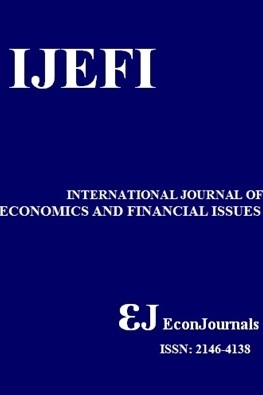Impact of Economic Growth, Foreign Direct Investment and Financial Development on Stock Prices in China: Empirical Evidence from Time Series Analysis
Impact of Economic Growth, Foreign Direct Investment and Financial Development on Stock Prices in China: Empirical Evidence from Time Series Analysis
- Başlangıç: 2011
- Yayıncı: İlhan ÖZTÜRK
Payment Methods in Acquisitions of Association of Southeast Asian Nations Bidders
Kien Dinh CAO, Thuy Thu NGUYEN, Giang Thi Thu DAO
Dana Kiselakova, Beata Sofrankova, Miroslava Soltes
The Management of Drinking Water and Long-term Perspective: Tunisia Case
Shadow Economic Activities: Assessment and Minimization Problems
Daniyar Baizakov, Anuarbek Kari
Human Capital, Institutions and Innovation in Sub-Saharan Africa
Stephen Oluwatobi, Oluyomi Ola-David, Isaiah Olurinola, Philip Alege, Adeyemi Ogundipe
Performance of Islamic and Conventional Banks in Pakistan: A Comparative Study
Shahab AZİZ, Maizaitulaidawati HUSİN, Shujahat Haider HASHMİ
The Role of the Gulf Cooperation Council’s Sovereign Wealth Funds in the New Era of Oil
Effects of Exchange Rate and World Prices on Export Price of Vietnamese Coffee
Creation of Provision for Doubtful Debts
Yuriy Ivanovich Sigidov, Marina Aleksandrovna Korovina, Aleksander Ivanovich Trubilin, Viktor Vilenovich Govdya, Nadezhda Konstantinovna Vasilieva
